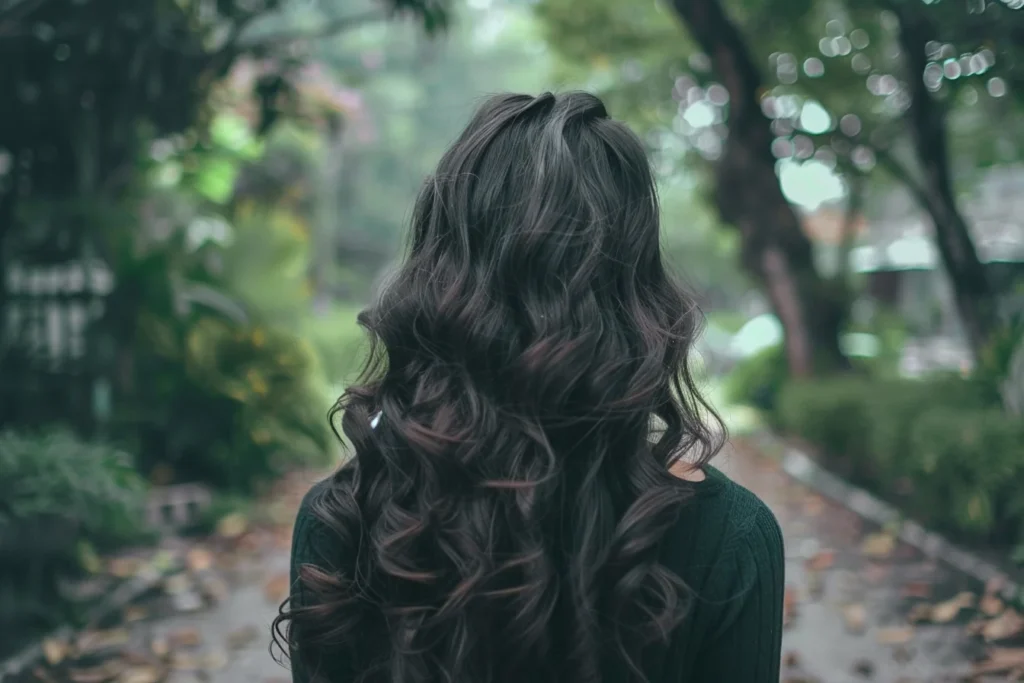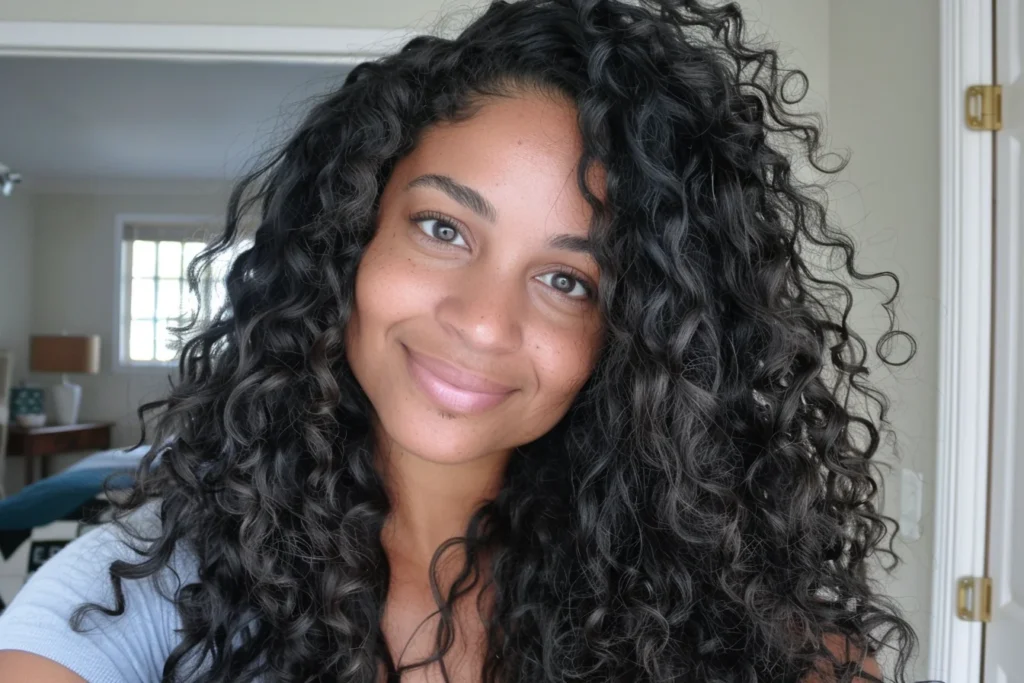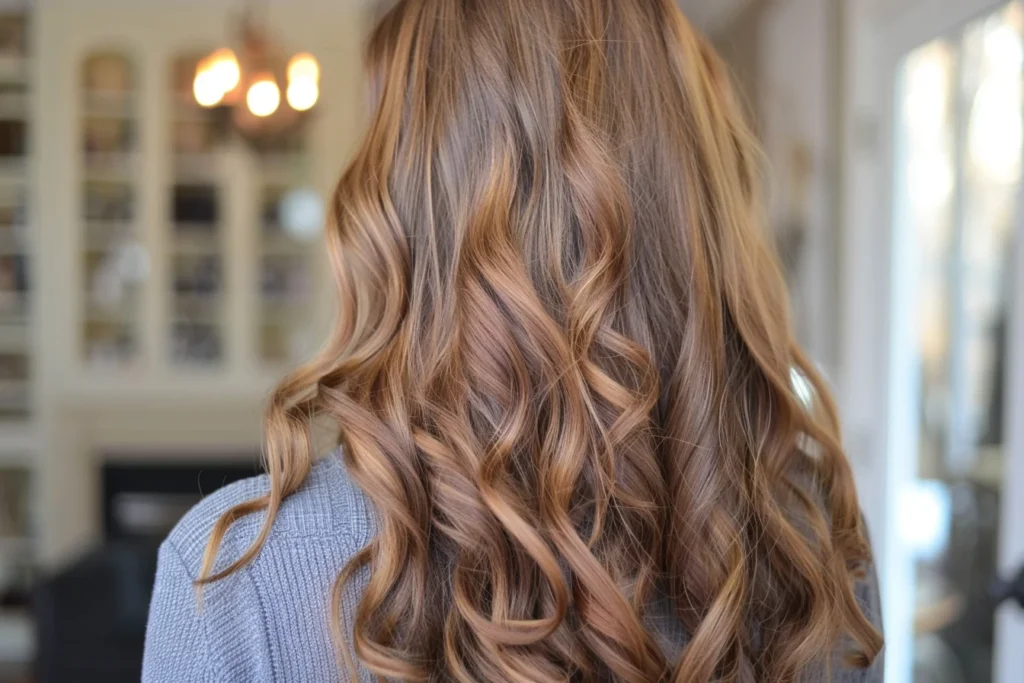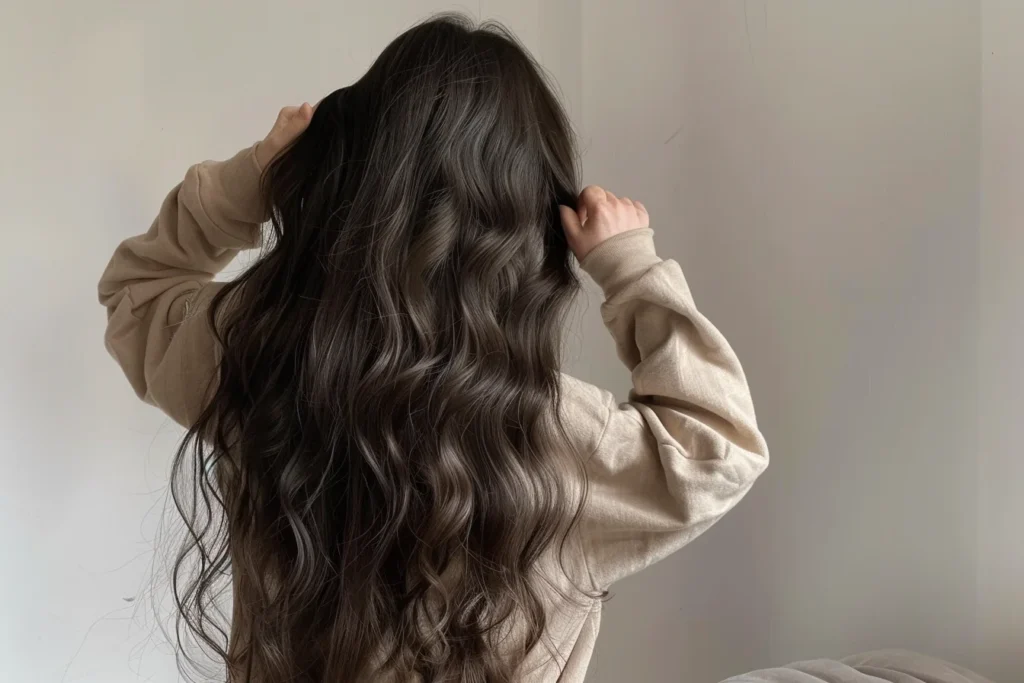First things first. There is no one-size-fits-all method to care for curly hair.
This is because there are several different types of curls that exist: loose waves, bouncy ringlets, zigzag, or fractal curls among others.
Knowing your curl type will help you figure out the best way to care for your curls; here’s a quick rundown of the nine main ones:
- Type 2A: fine, very loose waves
- Type 2B: large S-shaped waves
- Type 2C: waves and curlsmix, more prone to frizz with coarser
- Type 3A: large, loose, and defined curls
- Type 3B: medium barrel-sized curls
- Type 3C: pencil-sized springy coils
- Type 4A: ultra-curly corkscrew
- Type 4B: tiny Zig-zag shape sharp angle bend curl patterns.
- Type 4C kinkiest tightly shaped zigzag curly hair.
Note that the higher up you go on the scale, the more porous your hair becomes as well as how it breaks easily due to too much friction hence resulting in frizzy hairs.
While types 2A and B may only need a little bit of tender loving care (TLC), types 4B and C require more attention.
Find out about different curl types and other kinds of hair here.
Whatever your curl type may be though if you have curly locks this means that sebum which is an oily substance produced naturally in the scalp does not transfer easily down the length of the hairshaft like it does with straighter hair textures such as Kerry E.
Yates Hair & Scalp Treatment Specialist & CEO – Colour Collective explains that they are drier than other kinds of hair thus demanding special attention from their owners.
Here are some things everyone should know about washing their curly locks, which include how often they should be shampooed, the best products for curly hair, and what to do between washes.
So, how often should you wash?

Lindsey Little, owner of Lume Salon in Boston suggests that it’s best to wash your curls anywhere from once up to five times every week.
As noted earlier, this timeframe is fairly wide because the frequency of washing depends on the texture and condition of hair along with other factors like being outdoors exposed and how much you perspire.
In general, avoid using shampoo more than every second day Little advises.
If your hair is courser for instance then it can withstand a whole week without getting wet – it tends to be “thirsty” so that oils are not likely to weigh it down.
On the other hand, fine hairs may become oily very quickly. For example, you might want to wash fine curls three or four times a week unless the finer curls are drier as well.
Having dry hair might make two or three wash sessions per week too many.
RELATED: How to Find the Perfect Hair Care Routine for You
Our point again was that all curls are different.
Therefore experimenting with your washing schedule and closely observing your hair’s response to that schedule is pretty much a must-do thing for any individual who has natural waves.
While cleaning her locks Little used recommended focusing most of her shampoo lather on her scalp where oil buildup occurs but did not scrub at the tips where no oils made contact with them.
Right Schedule of Washing

You’re not certain if you need to tone down your weekly washes or wash more often? Your hair itself can provide some evidence that can help you decide on the best washing cycle.
- Washing too much curly hair leads to an itchy scalp and overly dry and frizzy strands.
- Insufficient cleaning results in greasy-looking curls with no life in them.
What about a combination? It may be because your hair is greasy on top while being very dry below.
Furthermore, post-washing hair care contributes just as much towards the wash process as the water does.
Little recommends:
- Blotting excess water from your washed hair
- Not rubbing your wet locks as friction causes frizz
- Using a wide-toothed comb or wet brush for detangling
Alternatively, using a microfiber towel or wrap will leave less frizz and more defined curls behind after drying them. The win-win situation doesn’t seem bad here.
Correct shampoo selection

No matter which shampoo option one goes for, ensure it has no sulfates or parabens as stated by Little.
- Sulfate substances cause dryness, inflammation, and irritation of the scalp including stripping off of natural oil from hairs. Among the most common sulfates in shampoos are sodium laureth sulfate and sodium lauryl sulfate.
- Parabens, on the other hand, can cause allergic reactionsTrusted Source or irritations of the skin.
Scalp problems like dermatitis and dandruff were associated with hair loss and reduced shine.
RELATED: 6 Ways to Infuse Dull Hair with Stunning Shine
In its place, choose shampoos with coconut oil that moisturizes as well as argan oil plus avocado oil – especially if your hair is coarse.
And dry or damaged through bleaching and heat styling. These ingredients will help in smoothing curls for a sleeker finish.
Glycerin which also promotes healthy-looking hair is another ingredient that encourages moisture in hair.
When it comes to improving scalp health, it was discovered that glycerol may be used in this case by pulling fluid into the air.
The last word

Curly hair is particularly prone to dryness so some special considerations need to be made.
According to experts if possible you should wash your strands at least every other day and even once weekly for extremely dry ones.
Stay away from harsh products such as sulfates which remove moisture instead of providing it while selecting nourishing contents including glycerin and plant oils.
Feeling meh between wash days? A quick rinse followed by a spritz of shine spray can really bring them back to life.

